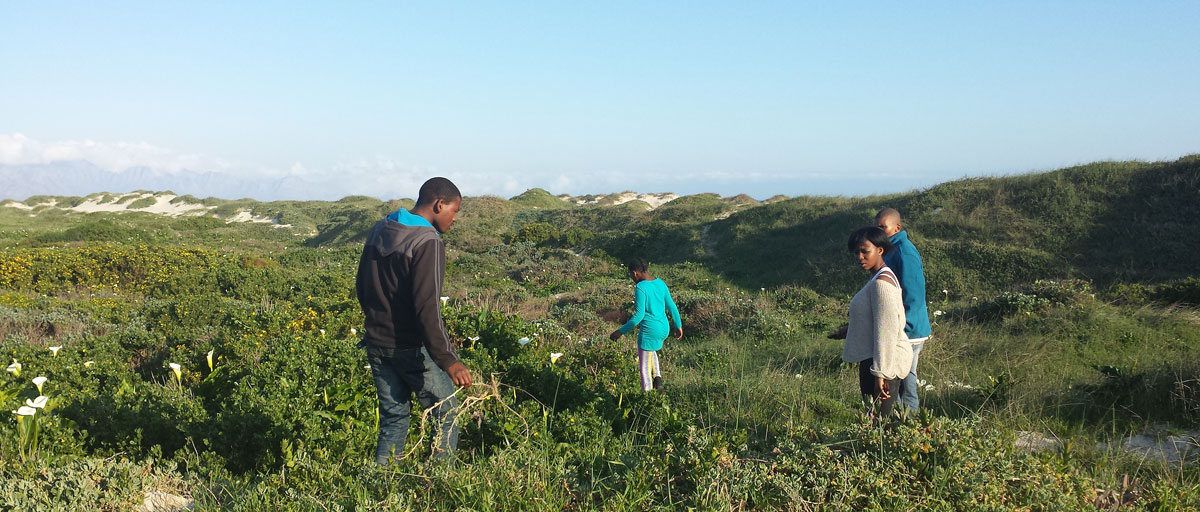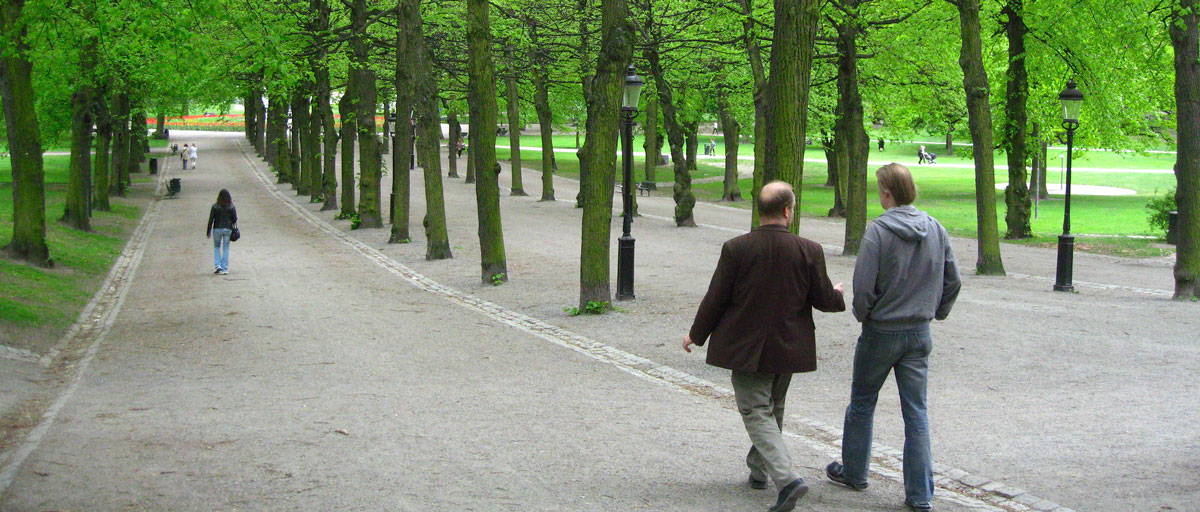Bildtext får vara max två rader text. Hela texten ska högerjusteras om den bara ska innehålla fotobyline! Photo: B. Christensen/Azote
HUMAN-NATURE CONNECTION
Connecting over a sustainable future
Better understanding of human-nature connections can provide a powerful window into how to drive sustainable behaviour
- New review study in Current Opinion in Environmental Sustainability addresses research gaps and ways forward in human-nature connection studies
- Identifying three subgroups of human-connection to nature research; mind, experience, and place; study highlights how subgroups could be integrated in future research
- Review study calls for research to establish different types of nature connections, and how they can contribute to positive changes for sustainability
Understanding human connections can give insight to what drives people to care and take care. Be it a connection to a place, story, or cause, it provides a powerful window into how to drive change. When it comes to understanding the mindset required for a sustainable future, human-nature connections could be key for global sustainability.
As Matteo Giusti, PhD candidate, describes “Understanding human-nature connections, what bonds humans to their natural surroundings, could allow us to better understand what makes people care about the environment. This could be insightful for positive changes for sustainability.”
To understand these connections better, Giusti, centre colleague Stephan Barthel, along with number of co-authors published the first systematic review on empirical research about human nature connections (HNC). Published in Current Opinion in Environmental Sustainability, the study assesses the diversity of subjects, methods and motivations in human nature connection research.
“It identifies subgroups of HNC research and their characteristics while considering how HNC could be one key to better understanding psychological motivations of biosphere stewardship, while transforming unsustainable human behaviours,” explains Barthel.
Exploring how sustainability science could facilitate integration of HNC of mind, experience, and place studies, could produce empirically and theoretically novel solutions-oriented research
Matteo Giusti , co-author
Nature connections to mind, experience, and place
HNC research has become a popular topic and received increasing attention the past seven years. In doing so, a number of trends have emerged.
Taking a closer look at the past 30 years of HNC studies, the authors find that the studies cluster into three separate groups: HNC as mind, HNC as experience and HNC as place. HNC as mind studies focus on cognitive or philosophical underpinning. HNC as experience and HNC as place both focus on emotional connections to landscapes, but differ methodologically as qualitative or quantitative, respectively.
The authors point out that while each of these subcategories complement each other by largely representing different disciplines, epistemologies, approaches and methods. HNC research could benefit from more integrated studies across these three subcategories as a way to unveil what would drive more sustainable behaviour. Giusti adds, “Exploring how sustainability science could facilitate integration of HNC mind, experience, and place studies could produce empirically and theoretically novel solutions-oriented research.”
Despite HNC research’s recent popularity, the authors also point out a number of topics within HNC research that merit more attention. For instance, few studies have focused on human-nature material connections, which could help explain resource consumption patterns and drive environmental sustainability action. HNC research tends to focus on western cultural findings, and focusing almost entirely on individuals while ignoring HNC at community or societal level.
In addition, the study points to better defining what characteristics of nature humans are connected to, and more explicitly outlining the importance of HNC for sustainability.
Linking to global sustainability
In moving towards the Sustainable Development Goals by 2030, understanding what connects people to their environment becomes important.
Barthel adds, “By identifying social-ecological situations that allow people to enhance their connection with nature, and understanding multiple types of HNC and how it fosters pro-environmental behaviour can help define characteristics and pathways for a sustainable future.”
In other words, understanding these connections can help induce sustainable action and culture, mindset, or assumptions. For instance, responsible production and consumption (Goal 12), or sustainable cities (Goal 11), could benefit from more people having an awareness of their “lifestyle harmony with nature,” the authors point out.
Moving forward, the authors call for “researchers and practitioners to take stock of existing evidence, integrate insights across methodologies, epistemologies, and geographic boundaries.”
Methodology
To complete this synthesis paper, the authors conducted a systematic review, a method where papers are searched for in a database criteria defined relevant to the review topic by the authors. In this study, the authors searched Scopus database for studies that had the terms like “nature,” “people,” and/or “connection” among many others, in the title, abstract, or keywords. The authors also decided that studies to be included should be: written in English, empirical, in peer-reviewed academic journals, that focus on explicit human-nature connections, and were published between 1984-2015. Studies that did not fit this criterion were to be excluded from the review.
After 475 papers resulted from the systematic review, the authors coded each of the papers for: (i) descriptive information, (ii) conception of nature, (iii) social group (ie. Individual, community, etc.), (iv) class of HNC, (v) methodology, and (iv) study’s purpose. This data was then analyzed using R statistical software to generate statistics about the studies.
Ives, C.D., Giusti, M., Fischer, J., Abson, D.J., Klaniecki, K., Dorninger, C., Laudan, J., Barthel, S., Abernethy, P., Martín-López, B. and Raymond, C.M., 2017. Human–nature connection: a multidisciplinary review. Current Opinion in Environmental Sustainability 26: 106-113.
Matteo Giusti is a PhD student, who’s research aims at defining principles of urban design that nurture strong human-nature connection in children.
Stephan Barthel is a researcher at Stockholm Resilience Centre, and University of Gävle (Sweden). He studies environmental issues in metropolitan landscapes.
%20HNC_people_park.jpg)










